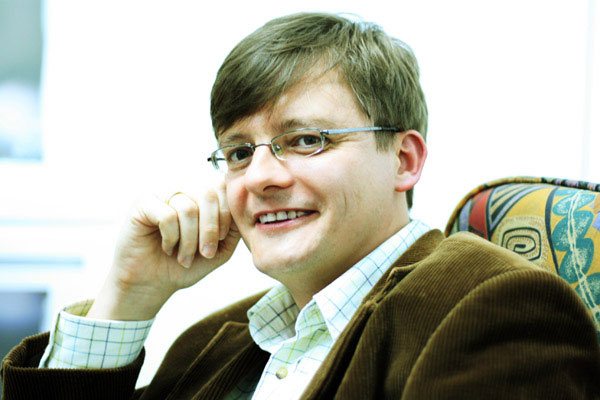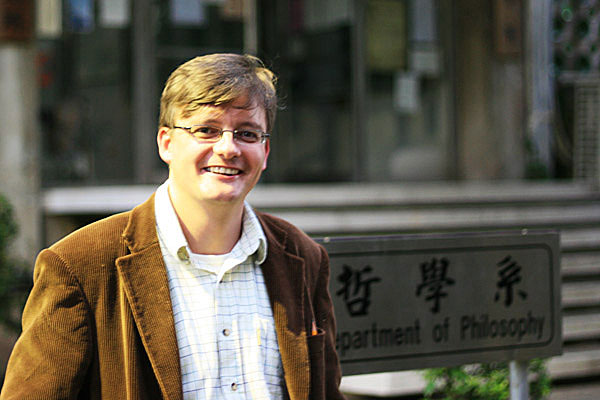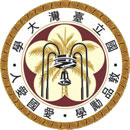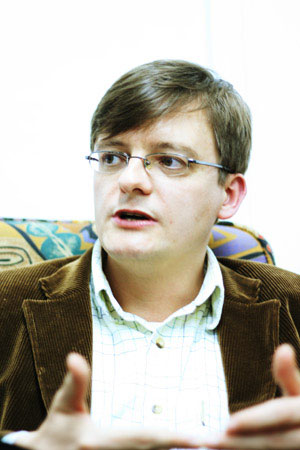National Taiwan University 國立臺灣大學
Dr. Wim De Reu魏家豪, Assistant Professor at Department of Philosophy

Dr. De Reu received his undergraduate degree in Sinology at Katholieke Universiteit Leuven, Belgium, where became deeply interested in Chinese philosophy. As Dr. De Reu’s undergraduate degree was concluding he consulted Katholieke Universiteit’s Sinology department director Dr. Nicolas Standaert鐘鳴旦 for his suggestion about where to do postgraduate study in Chinese philosophy. Dr. Standaert, one of the world’s leading Sinologists focusing on the interpretation of Western and Chinese culture, strongly encouraged the then student De Reu to pursue advance his studies at National Taiwan University. Dr. De Reu applied for the Master’s degree program and applied for a scholarship as well. Both applications were favorably received!
Arriving in 1996 Dr. De Reu chose to take just 2 classes in Chinese philosophy thinking that, even though he was confident in his Chinese ability from his undergraduate studies in Belgium, it was largely academic – perhaps better to ease into the application of his studies in a true all-Chinese classroom environment.

Indeed, he found the first semester challenging, being asked to read classical Chinese extensively. This was not the only challenge: in Belgium, Dr. De Reu was taught simplified Chinese characters. Arriving in Taiwan he needed to spend time to acquaint himself with traditional Chinese. characters. To Dr. De Reu, though, this was not as big of as challenge as handling the profundity of the subject matter, and handling in-classroom listening skills – particularly the speed at which native Chinese speakers spoke.
Dr. De Reu undergraduate days were spent living in Leuven, Belgium - a university city. Arriving at the NTU found Dr. De Reu found a vast campus in the center of the city, but still in a way set off from the city. Having finished 4 years of campus life in Belgium, and with a desire to be more immersed in the broader environment, Dr. De Reu took off campus housing for his graduate studies.

Dr. De Reu considers Taiwan as one of the most vital places to study Chinese – since students have direct access to the sources of even the most ancient texts. Despite some advantages in methodology and perhaps newer interpretations, for Dr. De Reu scholarship in the West cannot match the advantage of direct access to primary sources that is found in Taiwan. Dr. De Reu related how during his Master’s & Ph.D. studies at NTU students would not only read articles, but also be able to get to the various strains and influences that lead to various paradigms – to be able to reveal the entire skein of a philosophy’s development through their immediate access to the most ancient texts.
Furthermore, Dr. De Reu noted the way in which students and professors in his program are so deeply familiar with the materials. Dr. De Reu feels that studying with and learning from scholars who know Chinese philosophy as a matter of cultural inheritance provides the western scholar with an unprecedented advantage and insight.
Dr. De Reu was awarded his Ph.D. in 2004, and began teaching at National Taiwan University in August, 2005. He considered posts in Singapore, America and Taiwan as well. He admits that there were many strong offers and influences drawing him in different directions. An opportunity to do post. doc. At Harvard University, and offers from China.

Assistant Professor at Department of Philosophy
Still, Dr. De Reu returns to the issue of primary sources. Noting that in Europe or America access to original material is curtailed and that many departments focus on Modern Sinology, politics or economics. Further, with the usually small size of Chinese philosophy study departments and the way that, absented from the primary texts, students and scholars can often find it challenging to achieve sufficient depth – considering these factors for Dr. De Reu NTU becomes the most advantageous environment for studying Chinese Philosophy.
In addition to the manifest academic opportunities Dr. De Reu pointed out how welcoming he finds Taiwan for overseas visitors and students. He recounted the numerous times he’s been invited to the homes of local folks during holidays. Further, Dr. De Reu mentioned that he has always felt that Taiwan is a very safe environment, where even late at night a walk on the streets is not accompanied by the sense of danger one might have in any other capital city around the world.
Regarding the issue of teaching Chinese Philosophy when he is not himself Chinese, Dr. De Reu noted that he has in the past been challenged on this, though local students soon come to realize the depth of scholarship Dr. De Reu brings to classes. Dr. De Reu mentioned that one of the advantages he brings to the study of Chinese philosophy is a thoroughgoing immersion in the classic texts combined with his grounding in Western cultural and research traditions. Unique in his field Dr. De Reu’s singularity was one of the very reasons that led NTU to hire him. Still, Dr. De Reu points out that more and more Westerners are achieving just the same credentials, and expanding the corpus and understanding of Chinese Philosophy.
Addressing the issue of teaching style Dr. De Reu pointed out that it was his desire to encourage students to approach the material, and even his own classes, critically. Though he finds local students somewhat reticent to confront teachers in class, he has found this to be changing over time. Overall, Dr. De Reu finds NTU student to be of very high caliber.
To the idea of studying abroad, Dr. De Reu spoke at length of the way in which students gain key advantages through the experience. Seeing how other societies, though they may approach things in a totally different fashion, function no the less well -- seeing and experiencing this by studying and living overseas for an extended period of time broadens students understanding not just of the other cultures, but of their own culture and even themselves.
Dr. De Reu traces his initial interest in Sinology back to a UNESCO publication he happened upon as a youth. Recalling how he told his father, and elementary school principal, and mother, who worked for Shell Petroleum, Brunei, that his original interest in the law had changed to Sinology.




